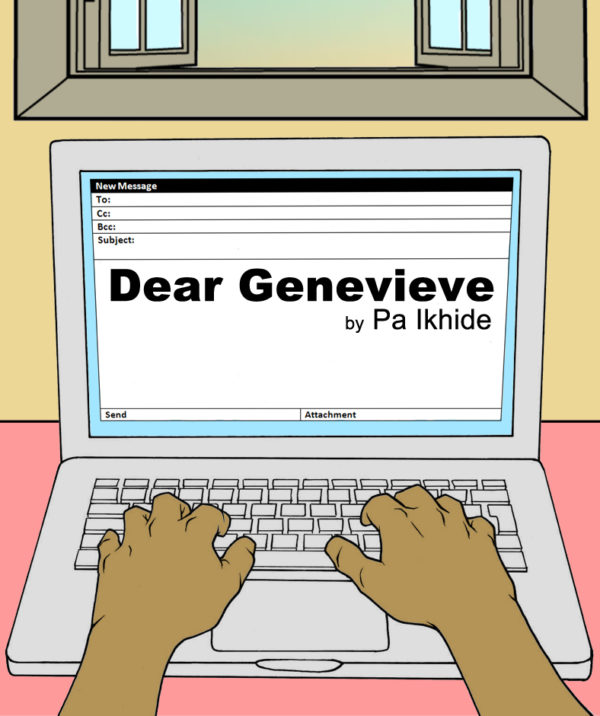What are you up to? Are the kids back from school? I am thinking of what you said the other day, about how you believe writers should be paid and paid well. I have always said that writers should be paid. It is a craft, a worthy vocation and those writers who give away the products of their gifts disrespect themselves and the writing profession. This is different from building a portfolio by initially writing for free. Many journals of repute live off “emerging” writers by giving them space and exposing them to the literary world. If your manuscript is accepted by a prestigious journal, I say go for it. However, you cannot sustain a life without money, you must get paid.
The issue is: In the 21st century, how will the writer get paid writing on the Internet where readers have grown accustomed to free stuff? It is a huge challenge. I will readily pay for the content from many writers I read on Facebook and Twitter if I had to. Right now, there is no motivation to pay them and no paying model robust enough to capture their contents and force me to dip into my wallet.
The next frontier in digital literature is to set up such a payment portal, not only for digital content, but for books even. I am thinking of a payment model along the lines of iTunes. It is hard to imagine music before the coming of iTunes. Fela is wealthier now than he ever was when he was alive. People gladly pay a dollar for each track, and it adds up to a lot of money for the artist. Imagine if half of the tens of thousands that follow me on Twitter agreed to pay me one dollar a month just to read my mood swings. I would be rich, LOL. There is hope: This morning I woke up and this piece in the New Yorker cracked a big smile on my face. You should read it. A couple set up a literary bookshop online, the Magunga Bookstore — in Kenya. It is an inspiring story:
A few years ago, Arunga, a Nairobi-based freelance writer in her late twenties, stopped by a few local bookstores and asked if they would stock “Akello,” her self-published collection of poems. At one shop, she was told that Kenyans don’t read poetry. At another, an employee claimed that her ninety-three-page book was too short. “They told me that my book had to be at least a hundred pages,” she said. So she decided to sell the book herself—at poetry readings, literary festivals, even family gatherings. “Literally everywhere. Like, except illegal places,” she told me. She kept a stack of copies in the trunk of her car. “I had at least six in my handbag at all times.”
This summer, she sold her thousandth copy, which translates to nearly one and a half books a day for the past seven hundred days. But she’s frustrated that it came to this. “You have to self-publish, you have to self-market, you have to self-everything,” she said. For both Arunga and Williams, it was an education in literary marketing. The two of them saw the vast gap, especially in Kenya, between those people who sell books and those who write them. “At the end of the day, a bookstore is a business,” Arunga said—and businesses have a way of resisting change. Shops won’t stock books unless they’re popular, but books seldom become popular if they aren’t stocked in shops.
And this one here made me weep rivers of joy:
Arunga and Williams agreed on one rule: They would stock only African books, distinguishing themselves from larger sellers such as the Guardian and Amazon. “Africans want to read African books,” Arunga said. “It’s all very well to think global, but I do believe in thinking local first.” On the streets of Nairobi, as in the supermarkets in Williams’s home town, venders tend to offer cheap books from the West. Strangely, Arunga says, Kenyan writers rarely attract attention locally until they’ve found success internationally.
Arunga and Williams get it. The African writer has to be like her Western counterpart to survive; be insular and provincial. Look inwards and find your own market. Arunga and Williams are also busting the culture of entitlement and privilege. They are not waiting for hand-outs, not looking for publishers, not waiting to be paid, they are taking care of themselves, using technology. Now, that is what I call innovation and a true pioneering spirit. I think also writers should apply their writing skills in non-traditional areas. Many corporations look for good writers to write content for their websites and blogs and pay well. Newspapers and journals are beginning to embed Twitter and Facebook timelines of notable writers on their websites — for decent pay. The technology is catching up so you better be ready for when that opportunity comes knocking.
It is still a tough life though, that of a writer. I am so glad I am not a professional writer, sha. My dad was terrified at the thought of me growing up a destitute writer, Marechera, weeping stone drunk under a palm tree, shaking his fists at the white man. He wanted me to be a doctor instead. He would say to me, “Go and be a doctor, doctors are rich, I don’t want you to be a poor writer, no one pays them. You can always write anyway!” I studied Biochemistry and refused to go to medical school. I do not regret studying the sciences in the university. I believe my biochemistry degree strengthened my thinking and writing skills. I do. Yup, I was supposed to go to medical school after biochemistry. I did not, thank goodness. I would have made a lousy doctor though. Just imagine me as your doctor. Have you eaten? What did you eat? Tell me…
“Dear Genevieve” is a writing-advice series. The weekly missive allows Ikhide Ikheloa, one of Africa’s foremost literary critic, to dish out prized advice on various aspects of writing. Stop by next Monday for the next email.
Read more from the series:
Pt. 1: Dear Genevieve, It’s All in the Narrative | By Pa Ikhide
Pt. 2: Dear Genevieve, Find Your Voice
Pt. 3: Dear Genevieve, Find Your Space
Pt. 5: Dear Genevieve | Of Reading, Writing, Purpose and All That Jazz
************
About the Author:
 Ikhide R. Ikheloa or Pa Ikhide is a social and literary critic who writes non-stop on various online media. He was a columnist with Next Newspaper and the Daily Times, Nigeria, where he held forth and offered unsolicited opinions on any and everything to do with literature and the world. He has been published in books, journals and online magazines and he predicts: ‘The book and the library are dying. Ideas live.” Find him on twitter @ikhide
Ikhide R. Ikheloa or Pa Ikhide is a social and literary critic who writes non-stop on various online media. He was a columnist with Next Newspaper and the Daily Times, Nigeria, where he held forth and offered unsolicited opinions on any and everything to do with literature and the world. He has been published in books, journals and online magazines and he predicts: ‘The book and the library are dying. Ideas live.” Find him on twitter @ikhide










COMMENTS -
Reader Interactions